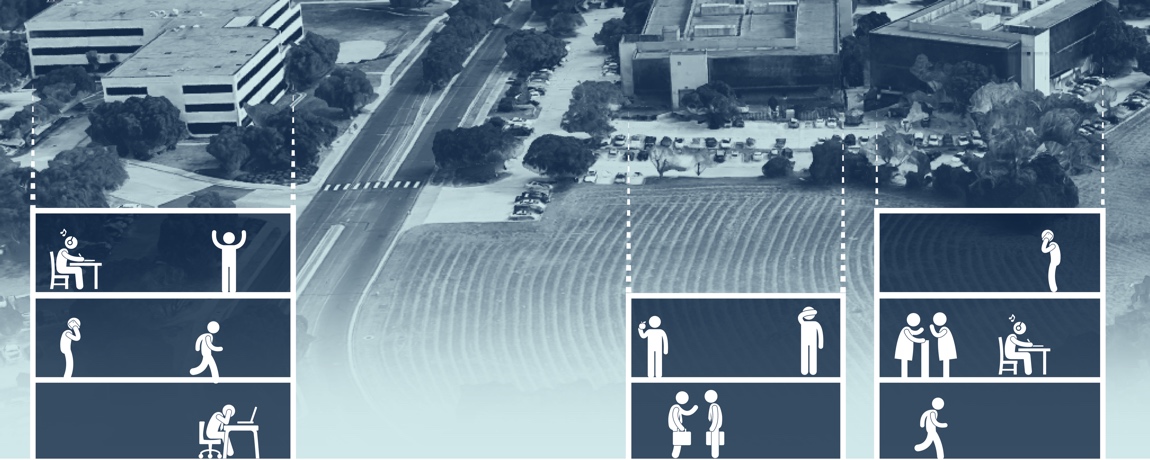
Services
- Pre-Design
- Change Management
Client: Texas Commission on Environmental Quality (TCEQ)
Location: Austin, TX
Date: 2021-2022
Download: Project Sheet
Client Objectives
- Proposed three potential plans for campus distribution, each of which amounted to a drastic reduction in real estate by emphasizing Activity-Based Working models
- Created specific profiles that identified and articulated the operational needs and potential outcomes for each department in a newly hybridized workplace
- Developed communication strategies that TCEQ could use to facilitate these changes
Texas Commission on Environmental Quality (TCEQ)
Aligning Operations and Values
The environmental authority for the state of Texas, TCEQ has been headquartered for decades in a sprawling Austin campus. Its five buildings, products of a bygone era, were primarily composed of enclosed offices, cubicles, and conference rooms. But when Covid-19 forced the agency to switch to telework in 2020, a surprising, previously missing sense of connection started to emerge: those who worked primarily in the field no longer felt excluded from in-person meetings they could not attend, and office workers no longer had to contend with the headquarters’ stark physical barriers.
Taking note of these improvements, TCEQ leadership contracted PLASTARC to sculpt a workplace that would better serve its productivity and sustainability objectives. PLASTARC used surveys, interviews, and data analysis to holistically evaluate TCEQ’s workplace and propose a comprehensive infrastructure redesign. After quantitatively and anecdotally profiling the unique workstyles and needs of eight departments, PLASTARC recommended that TCEQ should implement unique workplace redesigns that tailored to each department, rather than taking a one-size-fits-all approach.
By re-framing each department’s office to focus less on individual ownership and more on communal functionality, PLASTARC demonstrated how TCEQ could take full advantage of remote work’s benefits and facilitate collaboration. This fostered a more inclusive exchange of ideas and helped TCEQ radically reduce its real estate footprint, and thereby become more environmentally sustainable. PLASTARC’s proposals were approved by leadership and are now pending approval from the State Legislature.

